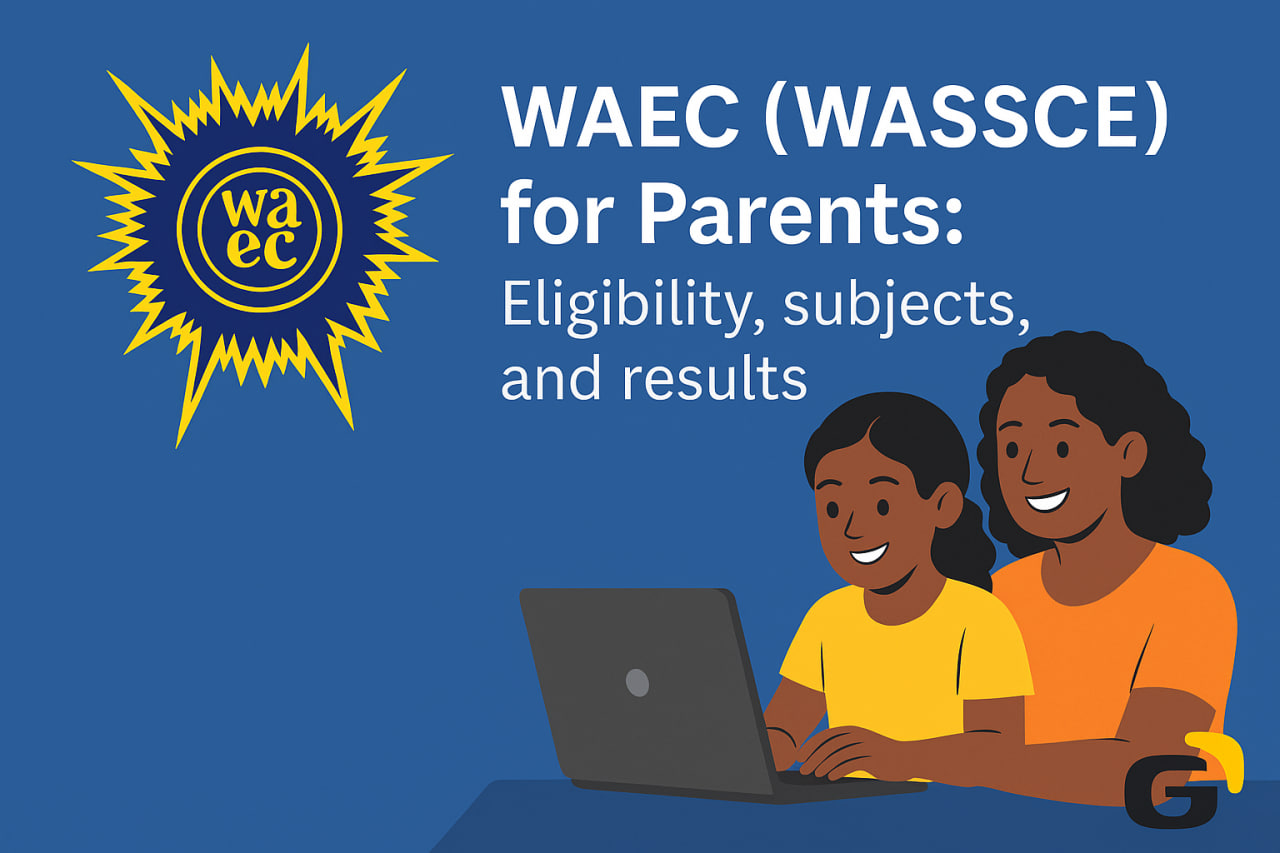WAEC (WASSCE) for Parents: Eligibility, subjects, and results
Nigeria › Exams › WAEC Guide
WAEC (WASSCE) for Parents: Eligibility, subjects, and results
Understand who WAEC is for, how to register, subject choices (including practicals), grading, and how results work.
- What:WAEC (WASSCE) is a regional academic exam widely used for university admissions across West Africa.
- Who:School candidates via schools; Private (GCE) candidates via approved centres.
- Key actions: Choose subjects carefully, plan for practicals, register before deadlines, and keep tokens/receipts safe.
On this page
- What WAEC is & who it’s for
- Eligibility (school vs private)
- Registration steps & documents
- Subjects & paper structure
- Timelines & result release
- Grading scale & interpretation
- Result checking, remarking, certificates
- Common mistakes to avoid
- Planning & study tips
- FAQs
What WAEC is & who it’s for
WAEC (WASSCE) is a regional academic examination widely recognised across West Africa, commonly used for university admissions and general academic progression.
Eligibility (school vs private)
- School candidates: Register via your school centre; timetable and practicals are organised by the school.
- Private (GCE) candidates: Register individually through approved centres; confirm timetable and venue early.
Registration steps & required documents
- Confirm candidate type (school vs private).
- Choose subjects with guidance from your counsellor/target course prerequisites.
- Prepare documents: passport photo, correct biodata (names/DoB), and required IDs.
- Pay fees before deadlines; print/keep evidence and tokens safely.
Subjects & paper structure
| Area | Notes |
|---|---|
| Core | English Language and Mathematics are core for most academic pathways. |
| Sciences | Biology, Chemistry, Physics may include practicals and/or orals where applicable. |
| Humanities | Government, Literature, Geography, History, etc. |
| Electives | Select to match target courses and strengths; avoid timetable clashes. |
Timelines & result release
Registration and exam windows vary annually. Results usually release weeks after the last paper; always verify dates on WAEC official channels.
Grading scale & interpretation
Understand how grades map to admission requirements. Keep official guidance for grade meanings and minimum subject credits for your intended course.
Result checking, remarking, and certificates
- Keep result tokens secure; use official portal only.
- Remarking is time-bound—review the guidelines and deadlines promptly.
- Check certificate collection process with your school/centre.
Common mistakes to avoid
- Subject choices not aligned with target courses.
- Late registration and incomplete biodata.
- Ignoring practical requirements and venue logistics.
Planning & study tips
- Practice past questions with timed sessions.
- Schedule practical prep/tutorials early.
- Track all key dates on a calendar; avoid clashes if taking multiple exams.
FAQs
Do universities outside Nigeria accept WAEC?
Many do, especially across West Africa; international recognition varies by country/institution—always check the specific entry requirements.
Can I combine WAEC and NECO results?
Many Nigerian institutions accept combined sittings—confirm the policy for your course and school.
How do I correct name/DoB errors?
Follow WAEC’s official correction process within the stated timelines; keep evidence of all requests.
What’s the remarking process?
Apply via official channels within the window; read the guidelines on fees and expected timelines.

